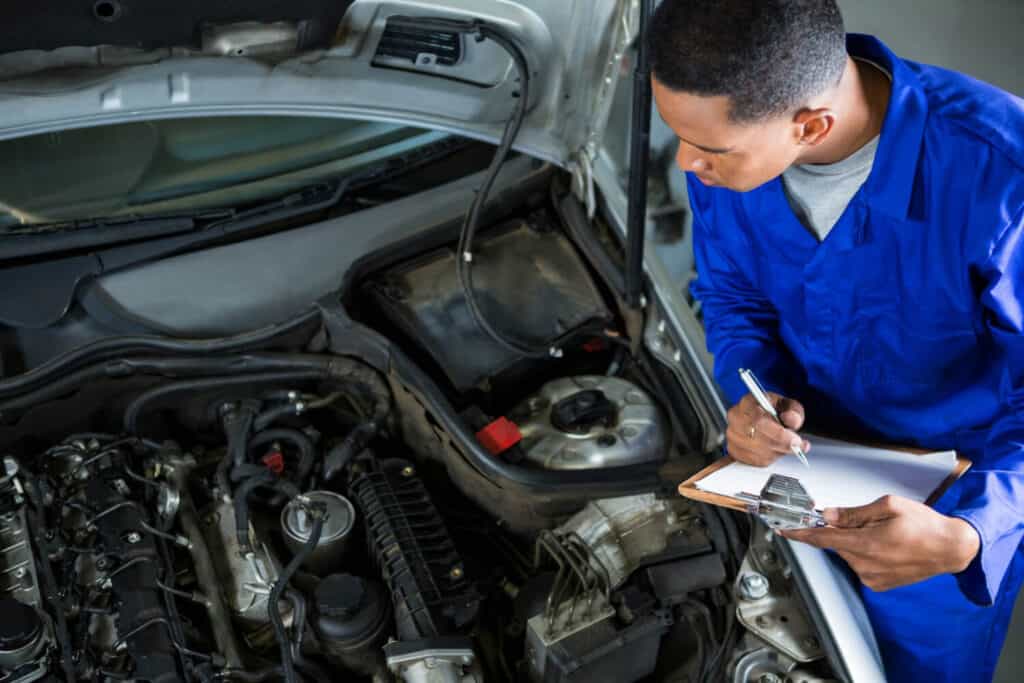Understanding Your Car Warranty in Canada: What You Need to Know
When purchasing a car in Canada, it’s important to understand the warranties available to you. A car warranty is an agreement between the manufacturer or dealer and the owner, promising to repair or replace certain parts of the vehicle within a specific time frame. In this article, we will provide an overview of the types of warranties available, what is covered, and how to know if your warranty is still valid.

What is a Car Warranty and How Does it Work?
A car warranty is essentially an agreement between the customer and the car manufacturer, promising that any defects in the vehicle will be fixed within a specific period. Car warranties serve as a guarantee that the customer won’t have to pay for most vehicle repairs or labour. These warranties can last anywhere from one to five years, depending on the manufacturer and parts. Additionally, car warranty terms and conditions vary based on the vehicle manufacturer and the type of warranty. All new cars come with a manufacturer’s warranty, which is also referred to as the factory car warranty.
In the event of a defect or issue with your vehicle, your warranty provides you with protection. If the issue is covered under your warranty and is within the specified timeframe, you can have it repaired at no cost to you. The responsibility of fixing the vehicle falls on your auto dealer, who is required to provide the necessary repairs. Once you take your car to the dealership for warranty work, a claim is filed. If the claim is approved, the work and parts required for the repairs will be free of charge to you as the owner of the vehicle. However, if a repair is not covered under the manufacturer’s warranty, your claim will be denied, and you will be responsible for paying for the repairs out of your own pocket.
How much does car warranties cost in Canada?
The cost of car warranties in Canada varies depending on the type of warranty and the level of coverage provided. Typically, a factory warranty is included in the price of the vehicle, but extended warranties can cost around $1,000 or more. The price of an extended warranty will depend on factors such as the make and model of the vehicle, as well as the level of coverage provided. It’s important to carefully consider the cost of a warranty and the specific terms and conditions before purchasing to ensure that it’s a worthwhile investment.
Is it worth paying for extended warranties?
When considering purchasing an extended warranty, it’s important to understand the coverage details and determine whether it’s worth the cost. Most extended warranties require a deductible and become more expensive as they cover more. Consumer Reports found that 55% of extended warranty owners didn’t use it for repairs during the policy’s timeframe, and on average, drivers paid over $1,200 for the coverage. Extended warranties begin on the day of purchase and will overlap with the factory warranty, reducing the coverage period. Experts suggest saving the money that would be spent on an extended warranty or investing in a more reliable vehicle. If you decide to purchase one, it’s possible to negotiate the price just like the vehicle price.
While an extended warranty can provide benefits, it may also come with restrictions and limitations that make it less valuable. It’s essential to read the fine print, understand which repairs are covered, and be aware of any restrictions, such as the required repair shops and specific parts or vehicle systems included. Ultimately, it’s essential to think through, shop around, weigh the pros and cons, and decide what’s best for you and your vehicle. Don’t let fear drive you to take on extra warranty costs, and remember that negotiation may be an option to save money.
The Pros and cons of extended warranties
Extended warranties can be a good option for those who want to protect themselves against unexpected or large expenses related to vehicle repairs. However, there are also some cons to consider:
Pros
• An extended warranty provides protection against unexpected or costly expenses for vehicle repairs.
• Most extended warranties cover components such as the engine, transmission, and heating/cooling/electrical systems.
• You can get an extended warranty for a used car as long as it meets age, condition, and mileage requirements.
Cons
• Not all parts of the car are covered by an extended car warranty in Canada, so it’s important to carefully read and understand the terms and conditions.
• Extended warranties can be costly, and in some cases, the cost may exceed what you would pay for repairs out of pocket.
• Some extended warranties may require a deductible or fee to be paid when filing a claim, which could add up to hundreds of dollars.
• Some customers have reported difficulty claiming warranty coverage, which can cause frustration and dissatisfaction with the extended warranty service.
Key take aways
• Consumer Reports found that 55% of extended warranty owners didn’t use it for repairs during the policy’s timeframe.
• Extended warranties may come with restrictions and limitations, so it’s important to read the fine print and understand which repairs are covered.

Types of Car Warranties
Comprehensive Warranty
This warranty is also called bumper to bumper and covers almost anything that fails during the specified time, which is generally three to five years. However, wear items or consumables like brake pads and wiper blades are usually only covered for one year or 20,000 kilometers.
Powertrain Warranty
This warranty covers the engine, transmission, and all-wheel-drive components, and typically lasts around eight years or 160,000km, depending on the manufacturer. The repairs will have no charge if they need to be fixed, but you may have to pay for parts associated with the repairs, such as hoses or belts.
Emissions Warranty
This warranty covers specific car parts that are responsible for reducing emissions, such as the catalytic converter or engine control module. It usually outlasts the powertrain warranty and may entitle you to a no-charge fix at the dealership for any emission-related repair.
Rust and Corrosion Warranty
This warranty offers protection against rust and corrosion on aluminum panels and visible and non-visible components of the car.
Hybrid and Electric Warranty
This warranty covers defects in electric motors, cables, and batteries. However, normal battery decline will not be covered since battery capacity reduces with use.
Tire Warranty
This warranty provides protection against unexpected deformities in tires or other manufacturing defects.
Extended warranty coverage includes emergency repairs for several vehicle components, although the exact components covered will depend on the provider and plan you select.
Some of the common extended warranties in Canada are:
• Bumper to bumper
– All major vehicle systems
– Air conditioning and heating components
– Electrical elements (including alternator)
– Steering system parts
– Select emissions components
– Safety features and tech systems
– Hybrid vehicle parts
• Powertrain
– Engine
– Transmission
– Axles
– Drive shafts
– Seals
– Gaskets
• Corrosion
– Rust and corrosion on vehicle exterior
However, there are some exclusions to extended car warranties, including:
• Routine maintenance, such as oil changes, air filter changes, and tire rotations
• Regular wear and tear, including brakes, clutches, windshield wipers, and other consumables
• Exterior damage, such as dings, scratches, bumper damage, and broken glass
• Interior damage, including rips in upholstery and broken plastic
• Damage not due to a car malfunction or defect, such as damage resulting from a collision, installing aftermarket parts, environmental factors, or improper vehicle maintenance.
Here are the steps to follow when making a claim with an extended warranty company:
• Confirm coverage: Check if the repairs you need to make are covered under your policy.
• File a claim: Contact the warranty company via phone, email, or online claim form.
• Choose an authorized repair facility: Find out which repair shops are authorized by your extended warranty provider.
• Confirm repairs: Before getting repairs done, have the repair facility contact the warranty company to confirm the repairs are covered under your policy.
• Pay for repairs: Some extended warranty companies require you to pay for repairs upfront and wait for reimbursement, while others will pay the repair shop directly.
What Can Void A Car Warranty?
• Failure of scheduled vehicle maintenance
• Incorrect fluid use
• Damage from accidents
• Vehicle misuse
• Car modifications that affect the performance of factory car parts
• Altered odometer
• Using non-manufacturer approved parts
• Neglecting warning lights or messages in the car
• Failing to properly register and title the vehicle in your name
Where to File Complaints About Extended Car Warranties and Manufacturer Warranties in Canada?
• If you’re experiencing issues with the sale or fulfillment of an extended warranty or service plan, reach out to the Ontario Motor Vehicle Industry Council (OMVIC).) to file a complaint.
• And if you have a concern about the fulfillment of a manufacturer’s warranty, you can contact the Canadian Motor Vehicle Arbitration Plan (CAMVAP).

Conclusion
In conclusion, understanding car warranties in Canada is crucial when purchasing a vehicle. Car warranties serve as a guarantee that the customer won’t have to pay for most vehicle repairs or labor. While all new cars come with a manufacturer’s warranty, extended warranties can be a valuable investment. However, it’s important to weigh the pros and cons before purchasing one. It’s also vital to know which parts of the car are covered and which are not, as well as the factors that can void a car warranty.
When making a claim with an extended warranty company, it’s important to follow the right steps to ensure that your claim is approved. With this knowledge, you can make informed decisions and protect yourself against unexpected or costly expenses for vehicle repairs.
